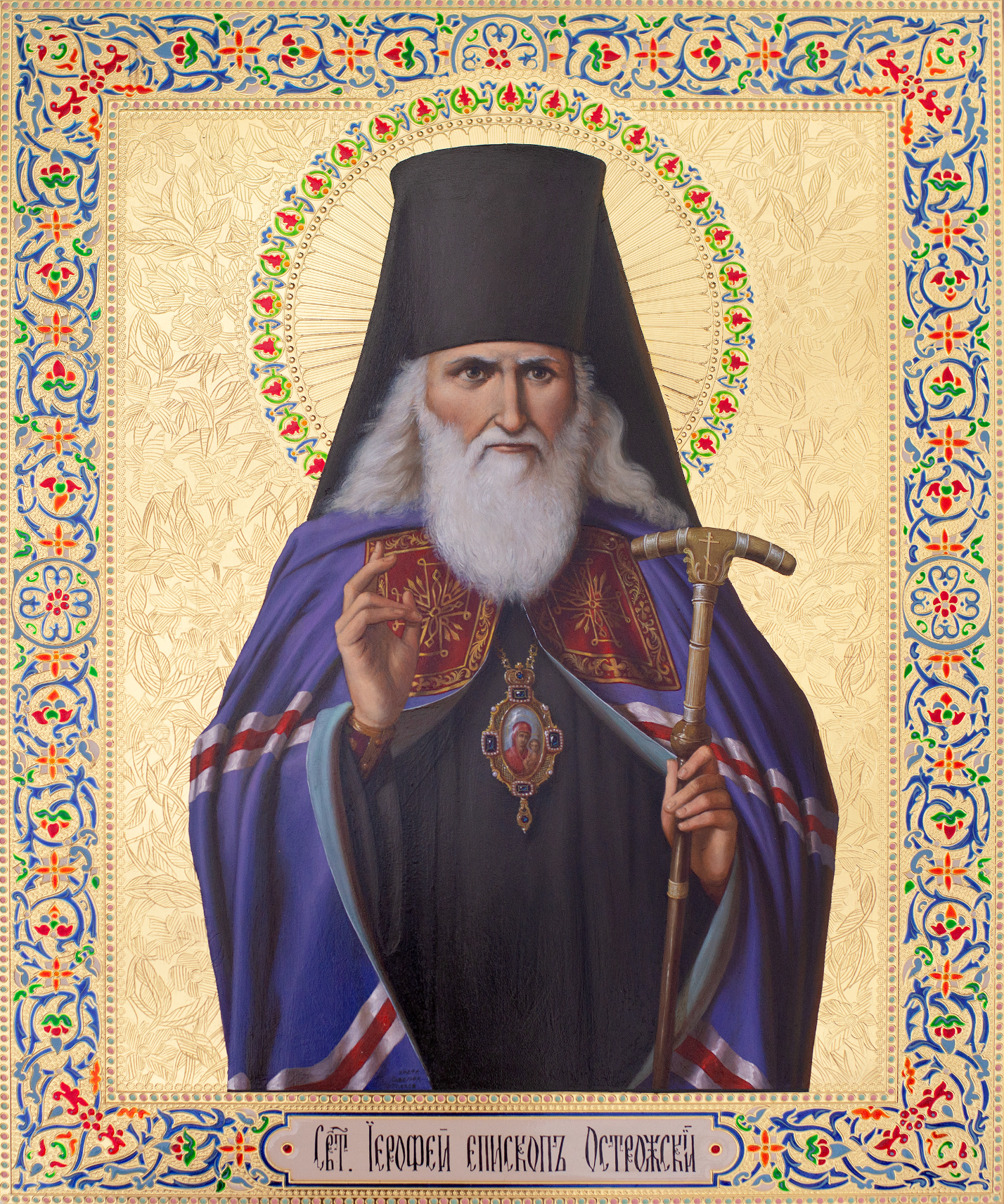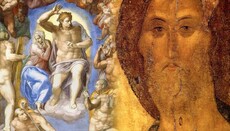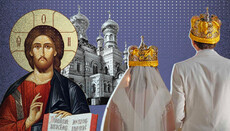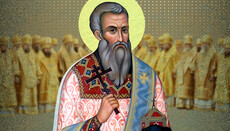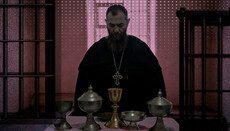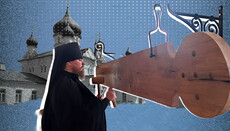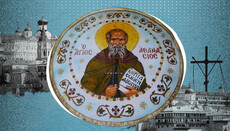Saint Hierotheus: A newly glorified saint of our land
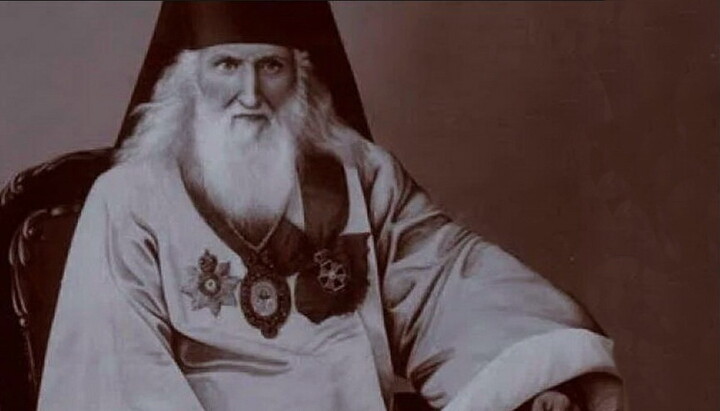
On September 11, 2022, the Holy Trinity Monastery in Derman, Volhynia, will host the glorification of Saint Hierotheus (Lobachevsky). What can we learn from his life?
Childhood and Youth
Saint Hierotheus – in the world Yakov Fyodorovich Lobachevsky – was born on March 24 (Old Style), 1789, in Kovel, Volhynian Governorate, then part of the Polish–Lithuanian Commonwealth. His father, Fyodor Lobachevsky, was a Uniate priest serving at the Church of the Exaltation of the Cross. This affiliation was forced upon him – as Uniatism was harshly imposed by secular authorities. Yet, he gravitated toward Orthodoxy – adhering to Orthodox customs, growing a beard, wearing a cassock, and conducting himself like an Orthodox clergyman – practices that contrasted sharply with the Latinized style of many Uniate priests of the time.
Because of his convictions, Father Fyodor was marginalized by the authorities and lived in poverty – supporting his family by giving private lessons. He also educated his children himself – Yakov being the most gifted.
Yakov learned reading, writing in Russian and Polish, the Law of God, arithmetic, and Latin from his father – and later began teaching other children himself. His gentleness and diligence made him a highly desired tutor in many homes.
After Volhynia was annexed to the Russian Empire in 1793, widespread conversions from Uniatism to Orthodoxy began. The Lobachevsky family was among the first to convert. Father Fyodor was then appointed rector of the Church of St. Simeon the Stylite – ten kilometers from Kovel.
Seminary and Academy Studies
Several years later, a theological seminary was opened in the city of Ostroh, and Yakov Lobachevsky went there to continue his education. In 1799, he and his cousin Hryhoriy Rafalsky were both admitted directly into the rhetoric class, as the seminary administration considered their home education to be of a very high standard.
Hryhoriy Rafalsky’s family was more affluent, and thus Yakov’s uncle, the priest Antoniy Rafalsky, took it upon himself to support both his own son and his nephew. Yet this is where another quality of the future saint became evident: like the Apostle Paul, he did not wish to burden anyone, though he had every right and opportunity to do so. Instead, he supported himself by the labor of his own hands, following the apostle’s words: “You yourselves know that these hands of mine have supplied my own needs and the needs of my companions” (Acts 20:34). Likewise, Yakov gave private lessons during his free time, especially during vacations, earning money to buy books, writing supplies, and other necessities.
“A noble character, held in high esteem among the youth. Exceptionally diligent, has made great progress, and is of the highest moral integrity.”
Yakov Lobachevsky’s love for learning was so great that in addition to the seminary curriculum, he also studied medicine, as well as French and German. Historical records have preserved assessments written by the seminary authorities. One such report states: *“A noble character, held in high esteem among the youth. Exceptionally diligent, has made great progress, and is of the highest moral integrity.”*
After graduating from the Volyn Seminary, Yakov Lobachevsky studied at the Kyiv Theological Academy from 1807 to 1811. While in Kyiv, in addition to his studies, he tutored the children of a high-ranking medical official – a general staff doctor – who was very well disposed toward him and treated him as his own son. This doctor had a large personal library and various scientific instruments: electric machines, chemical apparatus, anatomical tools, and so on. Yakov was allowed full access to all of these resources.
As a result, the future saint acquired not only a higher theological education, but also became a competent specialist in the natural sciences.
Teaching and Monastic Life
After graduating from the Academy, Yakov Lobachevsky returned to Ostroh, to his native seminary, where he began teaching grammar, German, and arithmetic. In 1814, he was tonsured a monk with the name Hierotheus, ordained a hieromonk, and appointed abbot (builder) of the Monastery of St. John the Merciful in Zahaytsi, while continuing his teaching duties at the seminary. The seminarians loved him dearly and attended his classes with great enthusiasm. In addition to theology and general education subjects, Hieromonk Hierotheus also sought to impart to his students knowledge in the natural sciences. Archival records show that he acquired advanced scientific equipment for the time: “electrical, galvanic, and pneumatic” machines, which he used to conduct physics experiments.
In 1822, Father Hierotheus – by that time elevated to the rank of archimandrite – underwent a serious trial. An inspection commission from Kyiv arrived at the Volyn Seminary and reported certain alleged abuses. As a result of the accusations, Archimandrite Hierotheus was dismissed from his positions as inspector and instructor of the seminary and retired to the Zahaytsi Monastery. Two years later, the injustice of the commission’s conclusions was revealed, and by a decision of the Holy Synod on June 2, 1824, all charges against Archimandrite Hierotheus were dropped.
At the Zahaytsi Monastery, in addition to long prayers and services, the future saint carried out a broad and fruitful range of work. He beautified the monastic church and brought the monastery’s operations into exemplary order. At the same time, he continued to deepen his knowledge of both theological and secular sciences. He conducted experiments in physics and chemistry, subscribed to scientific journals, and acquired scientific tools and instruments – all at his own expense. Among the local intelligentsia, Archimandrite Hierotheus became known as a wise and learned man. He also continued refining his skills in the foreign languages he had already mastered and learned new ones, including Italian and English. Later, as a bishop, he corresponded with leading scholars of the West.
In 1829, Archimandrite Hierotheus was appointed abbot of the Derman Monastery and became a member of the Volyn Diocesan Consistory. From that time until the end of his life, his activities were closely tied to the Holy Trinity Monastery of Derman.
Not long before Archimandrite Hierotheus became its abbot, the monastery had suffered greatly from a fire. The future saint labored intensely to rebuild and beautify it. With his refined taste in architecture and landscaping, he managed both to preserve the ancient style of the buildings and to modernize them with the latest technologies of the time. One interesting innovation was the installation of a telegraph system within the monastery, by which the abbot could communicate with the bellringer and give instructions on when and how to ring the bells. He also established a district-level religious school (Uyezd Spiritual School) on the monastery grounds, complete with necessary facilities for teachers and students.
However, Archimandrite Hierotheus had to devote most of his attention to consistory affairs. As a result, he resided mostly at the Pochaiv Monastery, where the diocesan consistory was based. Biographers of the saint emphasize his strict personal discipline and daily schedule: prayer, preparation for liturgy, scientific study, and correspondence all occurred at strictly set times.
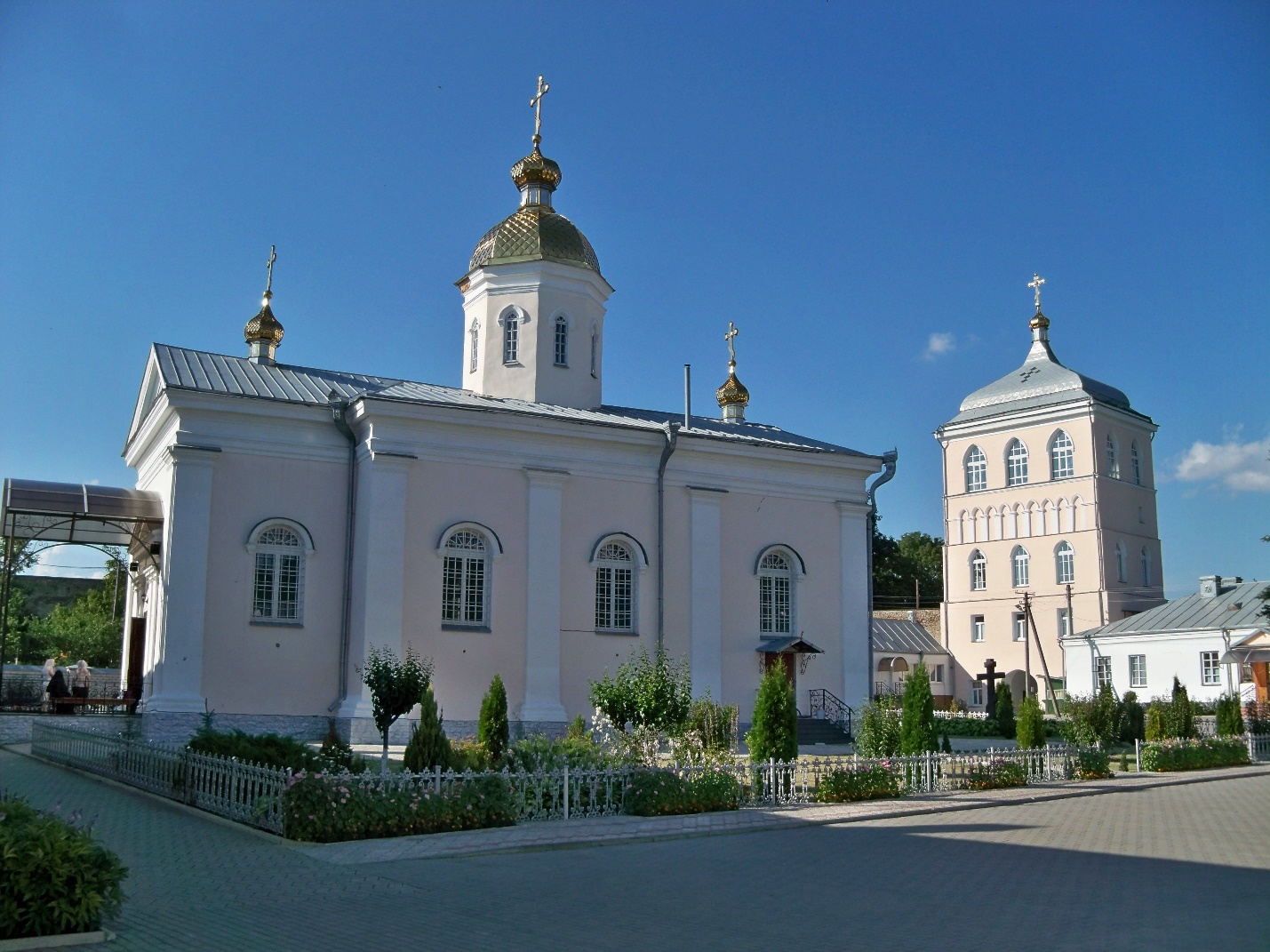
An interesting testimony about his daily routine has been preserved in his life story:
“The lifestyle he once adopted remained unchanged throughout his life. In the morning, to refresh his strength, he would take a bath, then walk for an hour in the garden. He did not drink tea, only light coffee, which he prepared himself. He ate one daily meal, consisting of several well-prepared dishes, and always at the same time. He disliked breakfast before lunch and never ate supper.
In both food and drink, he practiced extreme temperance. During lunch, he would drink two small glasses of fine grape wine. He did not like champagne and never drank grain-based wines, rum, porter, English beer, or other intoxicating beverages. His complexion was fresh, his face handsome and always youthful. He enjoyed excellent health and was never seriously ill. He did not call doctors or take medications. If he felt weakness or any irregularity, he would treat himself with a strict diet and home remedies, relying on medical handbooks and texts he kept and studied thoroughly. He became so knowledgeable in medicine – knowing anatomy, chemistry, and botany – that he could write prescriptions and prepare medicines himself.”
In 1840, Archbishop Nikanor (Klementyevsky) became the new hierarch of Volyn and transferred the diocesan seat from Pochaiv to Zhytomyr. Because Dermanka was far from Zhytomyr, Archimandrite Hierotheus found it difficult to regularly travel there for consistory duties, and thus began devoting more of his time to the Holy Trinity Monastery.
He fully restored the main monastic church, repaired the bell tower and other monastery buildings. He also continued his scientific studies and turned his attention to researching the local area – particularly the history of the Derman Convent. During this period, Archimandrite Hierotheus published many historical articles in the *Volyn Provincial Gazette*, though out of humility he did not sign them with his name. In 1845, he was appointed vice-president of the Volyn Prison Welfare Committee. His work in this role was twice officially recognized with “Highest Favor” from the imperial authorities.
Episcopacy
In May 1845, Archimandrite Hierotheus was consecrated as Bishop of Ostroh, Vicar of the Volyn Eparchy. At that time, the eparchy was vast and included Polish territories known then as the Warsaw Governorate. The ruling bishops resided permanently in Warsaw and only occasionally visited Volyn. For this reason, Bishop Hierotheus lived permanently in Zhytomyr and effectively oversaw the entire ecclesiastical life of the region.
The situation changed in 1860, when Bishop Antony (Pavlinsky) became the ruling hierarch of the Volyn Eparchy and settled in Zhytomyr. Bishop Hierotheus then moved back to the Holy Trinity Derman Monastery.
Few records have survived regarding Bishop Hierotheus’s 27 years of episcopal ministry. Most sources indicate that his service was relatively uneventful and did not feature major historical developments. Nevertheless, his work was marked by consistent wisdom and attentive personal involvement in the lives of clergy and laity alike.
Archimandrite Ambrose, author of “Recollections of Bishop Hierotheus” published in the Volyn Diocesan Bulletin, wrote that the bishop’s activity was always full of discernment and heartfelt concern for each individual. Those ordained by him were invariably sent forth with appropriate counsel and fatherly instruction:
“The priests of Volyn who received ordination from this holy hierarch will forever cherish his memory and will pass on to future generations stories of the fatherly love and care with which he guided each of them as they departed to their parishes.”
After 1869, in his ninth decade of life, the saint – who had enjoyed robust health throughout his years – began to feel his strength waning. In mid-1870, he submitted a request for retirement, asking to spend the remainder of his days in the Derman Monastery.
Blessed Repose
The Apostle Paul wrote in his Epistle to the Hebrews: “Remember your leaders, those who spoke to you the word of God. Consider the outcome of their life, and imitate their faith” (Hebrews 13:7). The blessed repose of Saint Hierotheus was a worthy conclusion to his long and fruitful life.
As he approached death, the bishop expressed a heartfelt desire “to surrender his soul into the hands of God – if not during the divine service itself, then at least at a time when his thoughts and feelings would be completely detached from all worldly vanity.” And the Lord heard the prayer of His faithful servant. Though Bishop Hierotheus’s illness progressed, by Pascha of 1871 he experienced a renewal of strength and served the divine services during the first three days of Bright Week. The last time he celebrated the Liturgy was on the Sunday of the Myrrh-Bearing Women. Soon after, he experienced numbness in his legs, which confined him to his deathbed.
The final five days of his earthly life were spent entirely in prayer, detached from all earthly concerns. After partaking of the Holy Mysteries of Christ, Bishop Hierotheus peacefully departed to the Lord on April 17, 1871.
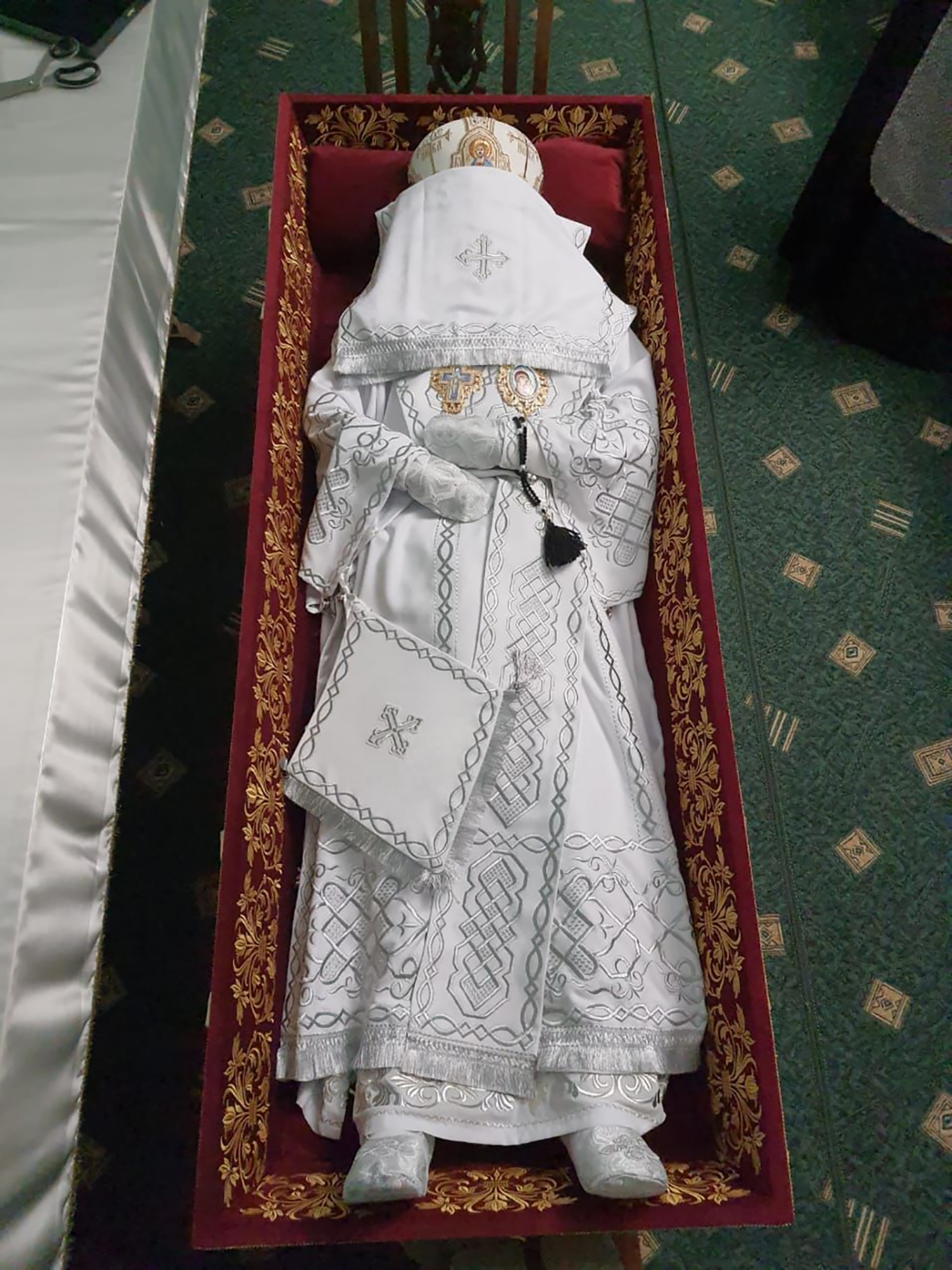
Photo 4: Relics of Saint Hierotheus of Ostroh (Lobachevsky)
Three days later, on April 21, 1871, in the presence of a large gathering of clergy and laity, he was buried in the monastic church – in the very place where, according to tradition, the relics of three former abbots of the Derman Monastery also lie. In the solemn eulogy delivered at his funeral, the following words were spoken:
“Let not our hearts be troubled at the sight of this tomb of our beloved Archpastor and Father. The faithful and holy use of the great talents granted to him by the Heavenly Giver – talents of nearly every kind, united within one person so that their application might become a model for us – gives us undeniable assurance that he now inherits the blessed rest prepared for him in the mansions of the Heavenly Father.”
* * *
Saint Hierotheus revealed in his life an astounding harmony between spiritual and earthly pursuits. He had a vibrant interest in the natural sciences, knew many languages, corresponded with some of the most brilliant minds in Europe, rebuilt and beautified his monastery, and conducted scientific experiments. Yet in all of this, he remained utterly submissive to the Spirit. He directed everything toward the glory of God and the faithful multiplication of the talents with which God had so generously endowed him.
In this regard, Saint Hierotheus stands as an example for modern people. Today, we are constantly overwhelmed by the noise of life. We strive to harness the power of science and technology for our benefit, we immerse ourselves in countless interests and fields of activity, and in the midst of it all, we lose ourselves – forgetting our souls and forgetting God.
But here stands Saint Hierotheus before us – one who lived not so long ago by historical standards – who also made use of the achievements of progress, loved science, enjoyed interaction with people, and engaged deeply with the world around him. He was not alien to worldly concerns. And yet, he knew how to put everything in its proper place: to subordinate the soul to the spirit, and the lower to the higher.
He bore many responsibilities, held important posts, and had a wide range of duties. Yet even in the midst of it all, he knew how to pray – to lift up his mind and heart to God. And the final days of his earthly life, spent in intense and unceasing prayer, show us how one must live in order to attain a blessed end and eternal life.
Holy Hierarch Father Hierotheus, pray to God for us!
